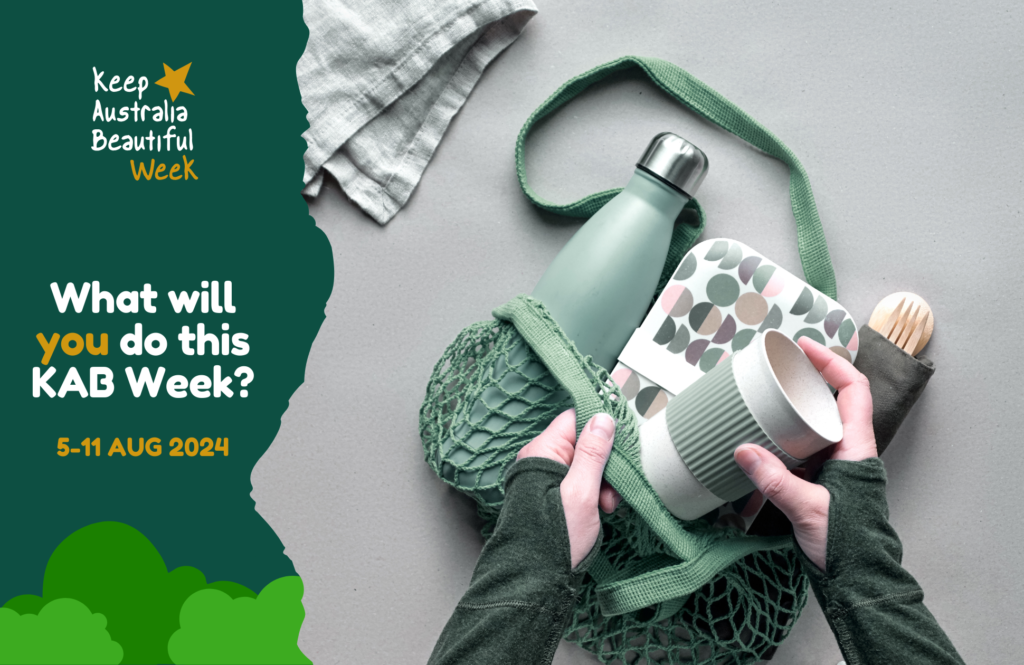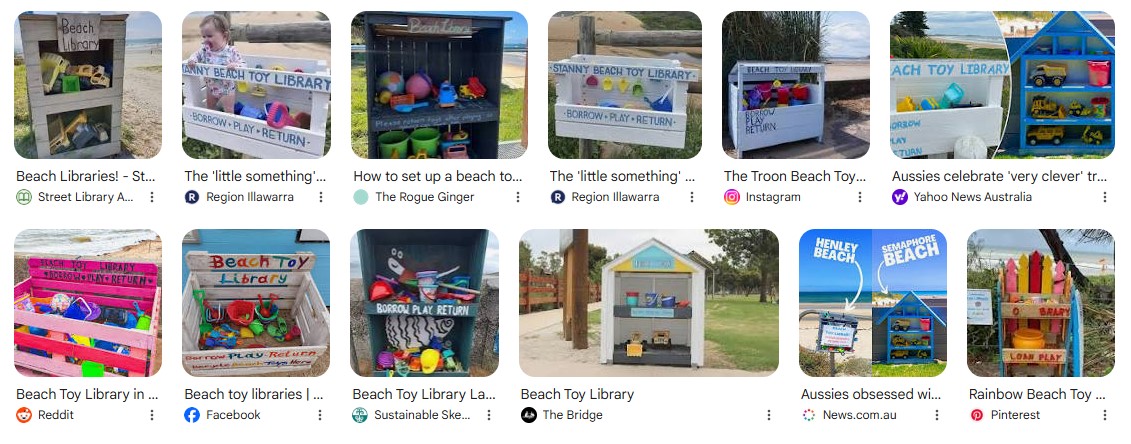
Tips to make sustainable purchases
(Blog#2 KAB Week 2024: Leave Only Footprints!)
We’ve all been there – you head out for the day and realize you have forgotten your reusable items at home. While planning ahead is ideal, you can still make sustainable choices even when you’re caught without your eco-friendly gear. Here are some tips to help you stay green while on the go:
- Avoid single-use plastic and choose products with minimal packaging:
If there is just one thing to remember, it would be to avoid buying items that contain single use plastics. These items are used for just minutes but can take centuries to break down and can be detrimental to wildlife. Look for products with minimal or no packaging to reduce waste. Otherwise, select items packaged in recyclable or biodegradable materials like paper, cardboard or glass. - Use the Container Deposit Scheme (CDS): All States and Territories around Australia, except Tasmania, now have the CDS scheme in operation, where eligible drink containers can be exchanged for a 10c cent refund. Although bottles, cans and cartons are single use, if you need to buy a drink while you are out, look for the 10c mark to know that if you drop the container at a collection point it will be recycled – plus you get some money back – win-win.
- Dine-in instead of takeaway: If you get hungry, choose to dine-in instead of takeaway to avoid disposable containers and cutlery. If dining in isn’t an option, some businesses offer compostable or recyclable containers and cutlery.
- Support Sustainable Brands: When making a purchase, prioritize brands that are known for their sustainability efforts. Look for products with sustainable certifications like Fair Trade, Rainforest alliance or a high energy rating. Keep an eye out for products and produce made locally too, as they often have a lower carbon footprint due to reduced transportation needs.
- Make the most of what you have: Use what you have on hand, for example if you buy a bottled drink use the bottle to carry water for the rest of the day. If you get a paper bag use it to carry other items, or if you end up with disposable cutlery, try to use them multiple times during your outing to reduce your waste.
- Buy in bulk: Items packaged in bulk require less packaging than individual purchases therefore create less waste.
- Prioritize Quality: Durable products last longer and have less need for frequent replacement. Even if a quality product appears more expensive at the outset, in the long run you are likely to save money as you won’t have to replace the item as often.
- Buy only what you need: Be mindful about what you’re purchasing while out and about and only buy what you truly need to avoid creating unnecessary waste.
- Secondhand items, rent or borrow: Buying second-hand items extends the lifecycle of clothing and goods, helping to reduce the demand for new products and keep items out of landfill. If you think you might only need an item once, consider renting or borrowing it to have the same effects of reducing demand and waste.
- Choose digital alternatives: Opt for digital receipts instead of printed ones. Take photos of any information you need like maps or event details instead of taking printed materials like pamphlets and flyers.
Even when you’re out and about without your reusable items, you can still make sustainable purchasing decisions. By choosing products with minimal packaging, supporting eco-friendly brands and being mindful of your choices you can minimize your environmental impact. If you do end up with recyclable items, make sure to dispose of them in the appropriate bins. If you can’t find any bins carry your waste with you until you can dispose of it properly at home. Remember to leave nothing but your footprints behind. Small decisions, in each moment, really do add up over time and count towards a greener future.
Photo by Cliff Booth from Pexels
WRITTEN BY: Rosie Starr (KAB Content Creator – Volunteer)










